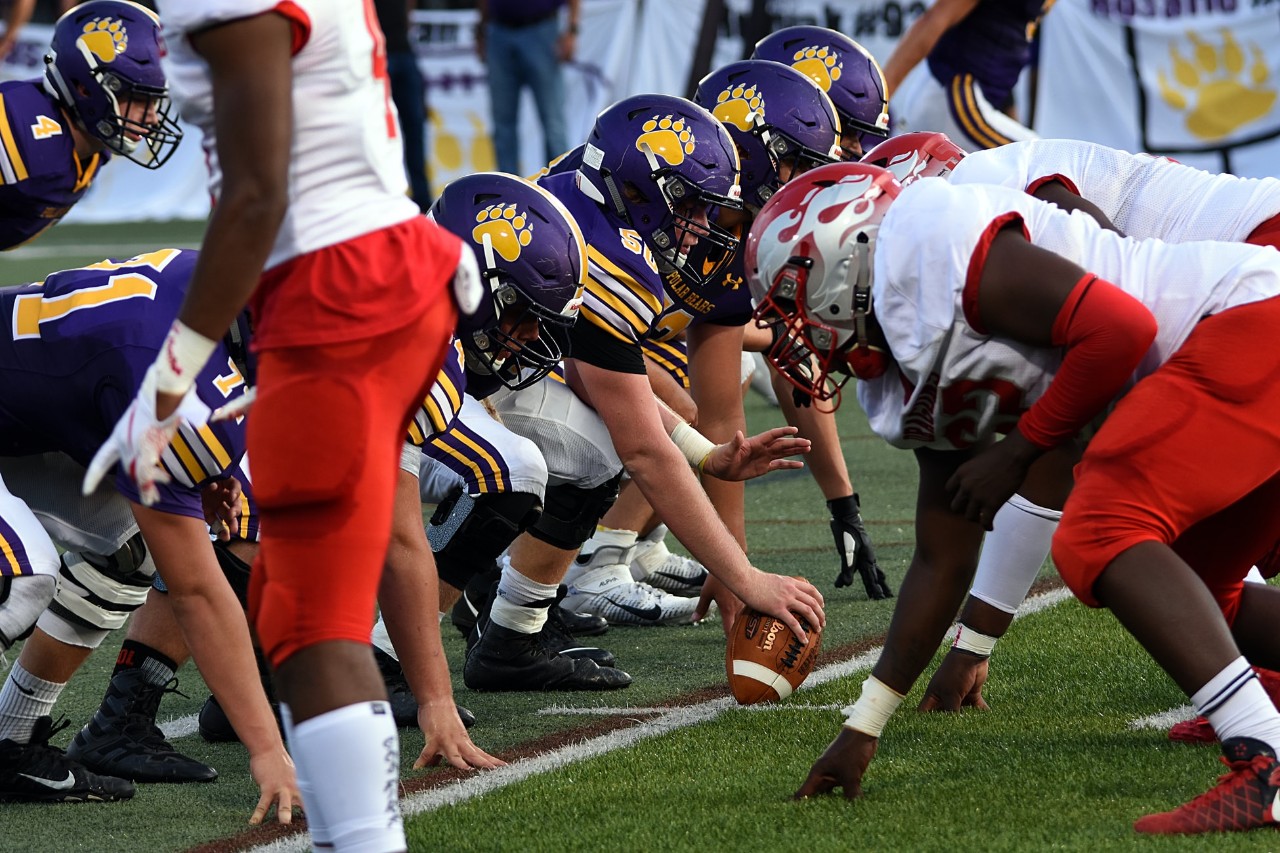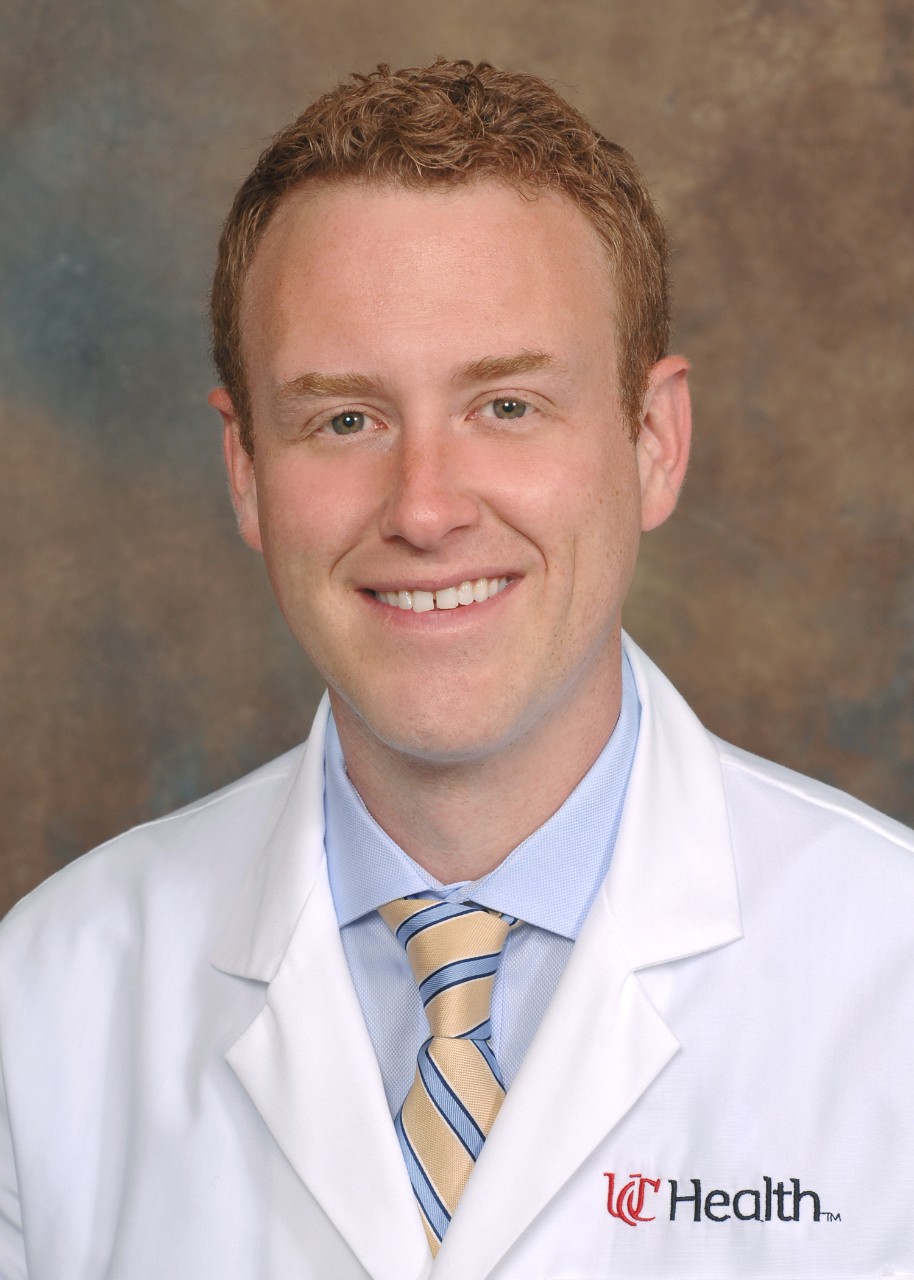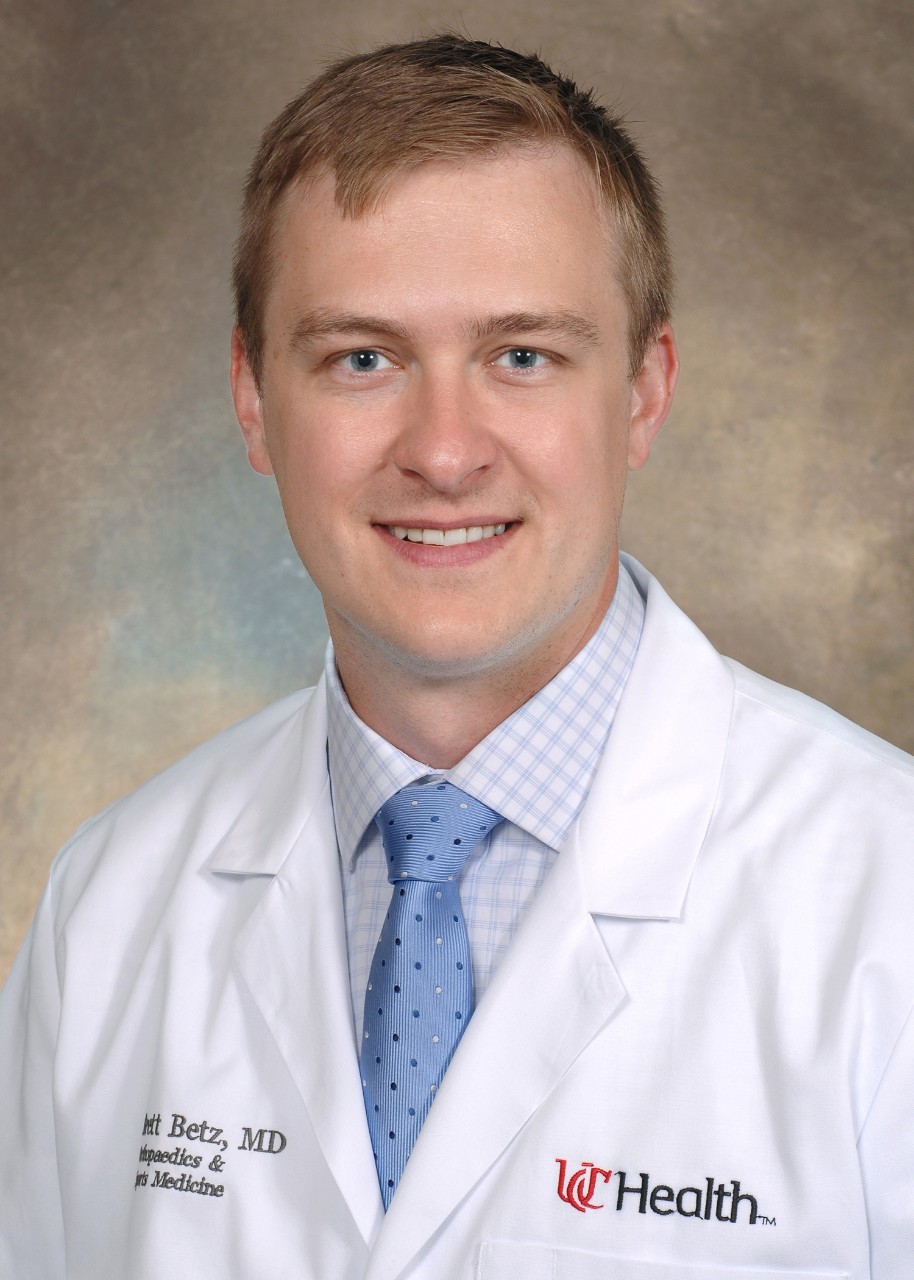
WVXU: Preventing sports injuries and helping young athletes put mental health first
UC experts say lack of conditioning because of pandemic restrictions could lead to more injuries
COVID-19 led to restrictions in training and competitions for athletes whether they were high school, collegiate or professional. Now with those limitations easing, athletes may find that returning to normal for a possible post-COVID fall season isn’t as simple as it appears, says a University of Cincinnati sports medicine expert.
Brian Grawe, MD, associate professor of orthopaedic surgery in UC's College of Medicine and UC Health sports medicine physician, says he fears there may be more injuries because athletes just aren’t as prepared after having limitations on their ability to train and condition for competition during months of isolation or severely restricted interaction.
“Athletes have a different level of conditioning, and there will be different levels of expectations associated with preparation,” says Grawe, who provides treatment for high school, collegiate and professional athletic teams in the Tristate. “We got used to these Zoom meetings and lack of in-person interaction. A lot of the different sporting teams, high school, college and professional ranks have gotten used to this platform and are using it to prepare.”
Grawe and Bret Betz, MD, assistant professor of orthopaedic surgery at UC, spoke with WVXU’s Cincinnati Edition about proper physical and mental conditioning for high school, collegiate and professional athletes.

Brian Grawe, MD.
“Training for everyone from the weekend warrior up to the professional athlete has been interrupted,” explains Grawe. “They have not been able to go to the gyms regularly, and competition will start as if nothing has ever changed. It will be interesting to see if we have an increased injury risk associated with acute injury or an increased injury associated with chronic overuse of things associated with people not able to condition their bodies as they really want to.”
Sports medicine experts say making sure that athletes are prepared for the mental challenges they face returning to competitive events is also important. The challenges faced by Olympian Simone Biles brought this to the forefront. During the summer Olympics in Tokyo, Biles took home a bronze medal on the balance team after withdrawing from the team and individual all-around finals citing a case of the ‘twisties’ and feeling an overwhelming pressure to perform.
Betz says as competition ramps up he is seeing athletes coming in with soft tissue injuries, pulls, and hamstring injuries. There is a lot of eagerness with young athletes to prove their abilities and it is important to remind trainers of the risks of moving forward without proper conditioning for these competitors, explains Betz.
“Mental health has taken on a predominate focus for us as clinicians as far as overall athletic health,” says Betz.
Clinicians have preached the importance of both physical and mental conditioning and strides have been made even before COVID-19 within sports organizations such as the NCAA and high school athletic groups to put a focus on mental athletic health. Betz says Biles feeling comfortable talking about her own mental health speaks to the strides made in having dialogue about this topic.

Bret Betz, MD
Betz says just educating athletes that it is okay to think about their own mental health and remind them that physical health and performance is connected to mental well-being. It also means making coaches and parents aware it is acceptable to discuss mental health and to address it, Betz adds.
“I am keeping an eye on whether there is an explosion of injuries as activity levels ramp up in the next 40 days and will these injuries have an impact on physical and mental health,” says Grawe. “Is it going to be a true explosion of injuries since so many individuals have not been able to do what they want to do as far as training in a linear fashion for a long time.”
“Athletic people are ramping back into athletic endeavors and they are doing it too soon,” Grawe says. “They are chomping at the bit to get back to doing something.”
Grawe says he is also seeing more orthopaedic injuries among non-athletes related to the lifting of COVID-19 restrictions.
“I would say this sounds silly, but if you are a non-athlete I am seeing a lot of people injure themselves doing things they would never do before,” says Grawe. “These are people who are cooped up at home and they then get a chance to go to a family lake house. They decide to water ski and then suffer an injury.”
“They have decided to do something because they have been indoors, and they are sick of not being able to interact with others, and they end up really hurting themselves,” says Grawe. “People are doing things they would never ordinarily do and now they need surgery.”
Impact Lives Here
The University of Cincinnati is leading public urban universities into a new era of innovation and impact. Our faculty, staff and students are saving lives, changing outcomes and bending the future in our city's direction. Next Lives Here.
Stay up on all UC's COVID-19 stories, or take a UC virtual visit and begin picturing yourself at an institution that inspires incredible stories.
Related Stories
Doctors prepare for surgeries with 3D-printed organs
April 11, 2025
Meteora3D, a Venture Lab-backed startup, helps surgeons better understand upcoming procedures by designing and developing quick-to-produce, 3D-printed anatomical models.
A 'night on the Serengeti' — in Cincinnati
Event: April 12, 2025 6:30 PM
University of Cincinnati and Village Life Outreach Project celebrate two decades of service to communities in rural Tanzania. The milestone will be honored on April 12 with a vibrant fundraiser titled “Village Life: Night on the Serengeti,” hosted at Cincinnati’s contemporary 21c Museum Hotel. The evening promises Tanzanian cuisine, art, live performance and, most importantly, a renewed call to sustain a mission that has transformed lives across continents.
How color cosmetics merge form with function
April 9, 2025
The University of Cincinnati's Kelly Dobos was a featured expert in a Cosmetics & Toiletries article explaining trends and innovations in color cosmetics.
